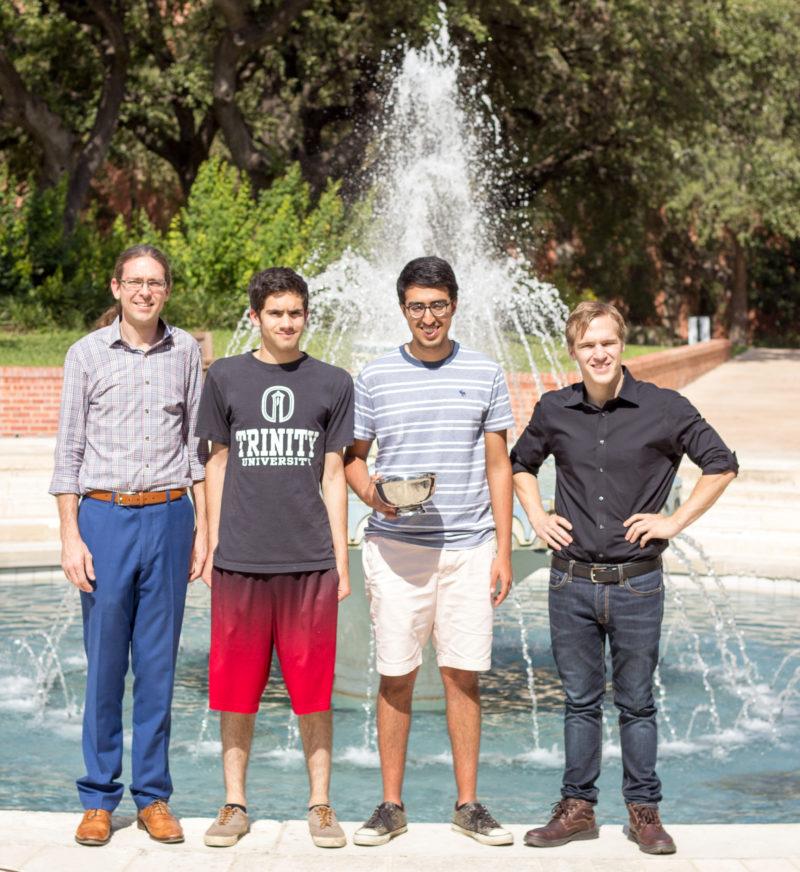On the weekend of Sept. 15, Trinity University sent six students to a policy debate tournament at Georgia State University. Policy debate, which features teams of two arguing the intricacies of a year-long debate topic, is a fiercely competitive game; more than 30 universities across the nation were represented. That didn‘t stop sophomores Ian Dill and Ansh Khullar from making it to the double-octofinal round, placing them as one of the best-performing 32 teams at the tournament.
A policy debate tournament consists of eight preliminary debates before the elimination rounds begin; each debate lasts about two hours apiece. One topic sets the stage for debates, but each round is unique and teams trade off between affirming or negating the topic.
“This year, the topic for everyone is health care,” said Dill, an economics and environmental studies double major. “Since you have to defend both sides of the debate during the tournament, we have to research a variety of different positions on the issue. When we are affirmative, we propose a way to fix the Affordable Care Act and explain how that can help stabilize premiums for people buying health care on the individual market. When we are negative, we have to be ready to address various proposals such as single-payer [healthcare], a public option, vouchers, etc.”
After prelims, the teams are ranked, and the top 32 teams advance to the single elimination component of the tournament. Dill and his partner Khullar lost in the double-octofinals elimination round, but they will have a chance for redemption this weekend at the University of Kentucky tournament. Dill and Khullar were one of 110 teams participating in the tournament‘s varsity division.
“My role on the debate team is that I‘m part of one of the two teams that get the opportunity to consistently travel to tournaments across the nation,” said Nicholas Pereda, a first-year considering a major in political science. “I joined the debate team because debate was something I was very passionate about in high school, which has carried over, and I‘m also a recipient of the Baker Duncan scholarship for debate.”
Pereda competed with first-year Claire Carlson; the third Trinity partnership at the Georgia tournament was junior Zabdi Salazar and senior Sasha Faust. All three pairs competed in the varsity division of the tournament.
“Joining the debate team has really helped me learn more about public speaking, policy creation and current affairs,” said Sasha Faust, a human communication major and performance studies minor. “Policy debate teaches you to think quickly and analytically and to keep listening even when you don’t understand a topic or find it boring.”
Policy debates involve the proposal of a plan by the affirmative team to enact a policy, while the negative team offers reasons to reject that proposal. Students have the opportunity to cross-examine one another and argue their positions even further.
“I did debate team in high school, mostly,” Dill said. “I knew that I wanted to continue doing it in college, and the coaches [Will Mosley-Jensen and Collin Roark] made a concerted effort to get myself and Ansh to come to Trinity.”
The debate team has a full schedule ahead, traveling to up to eight tournaments this year around the country before the National Debate Tournament. The Georgia Debate tournament provided a glimpse of what is to come as the teams begin to perfect their strategies and arguments in the upcoming weeks.







